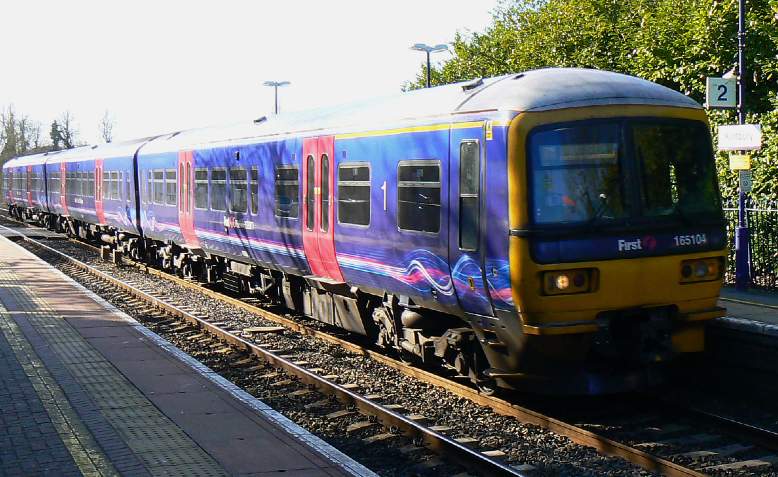 Commuter train towards Reading, Kintbury. Photo: Brian Robert Marshall / CC BY-SA 2.0, license linked below article
Commuter train towards Reading, Kintbury. Photo: Brian Robert Marshall / CC BY-SA 2.0, license linked below article
Kieran Crowe explains the context and the significance of the overwhelming vote for strike action by RMT members nationally
After a year of being on the cards, a Britain-wide rail dispute has heated up to almost certain mass industrial action this week. Over 25 thousand RMT members voted to take strike action, which is a historically huge mandate that the union rightly hails as the biggest industrial action since privatisation. It also arguably transcends privatisation since strikes will be taking place across the fragmentation of rail sector against the state-run track maintenance company Network Rail and more than a dozen of the dysfunctional train operating companies (TOCs). This very much expresses the reality that none of these entities really run the railway: since Covid, the government has been doing that, and this is really a strike directly against the Tory government.
The government has absolutely known this was coming, and any expression of surprise by them is a complete lie. This time last year, under the cover of a mostly meaningless announcement about “Great British Railways”, transport minister Grant Shapps had brought in the notorious union-buster Keith Williams to a parallel report on “opportunities for efficiencies” and “workplace and pension reform” in the rail sector, explicitly using the collapse in travel under lockdown to cut jobs, pay and pensions. All these issues are concerns that rail workers have now voted to action on.
The Tories are making no real offers to the unions, but they are making threats. The rightwing press has reported that Grant Shapps seeks to make transport strikes that do prevent a “minimal service” from running completely illegal, which is something that Conservatives have loudly speculated about for many years. There are no explicit details of any actual change to the law yet, but it needs to be said that if the government can do it to rail workers, they’ll do it to all workers soon enough.
The papers are also stepping up appalling personal propaganda against the RMT prominent members of it. The attacks are a combination of the usual – claiming that trade unionists are overpaid or intentionally antagonistic to the public – as well as a disturbing return to a somewhat retro Cold War era rhetoric. Many leading RMT members have spoken out about the aggressive militarisation that Britain and the rest of the West have been engaging in since the Russian invasion of Ukraine: this is being spun as a direct smear that trade unionists work for Putin. As silly as this is, we can expect to see much more of this, as the Tories become more and more desperate to justify attacks on workers.
The RMT dispute will be big, but there is still scope for the dispute to expand. The white-collar TSSA union has been holding large meetings of reps within Network Rail and committed to coordinating with the other unions in this dispute just three weeks ago at its annual conference. Drivers’ union Aslef also have live ballots which close in a majority of TOCs by July, and will almost certainly also lead to action. There is a prospect of nearly total strikes on the railway, just as journeys are recovering more strongly than some projections suggested and the government’s popularity is rightly collapsing over the massive economic and cost-of-living crisis.
Before you go
The ongoing genocide in Gaza, Starmer’s austerity and the danger of a resurgent far right demonstrate the urgent need for socialist organisation and ideas. Counterfire has been central to the Palestine revolt and we are committed to building mass, united movements of resistance. Become a member today and join the fightback.

